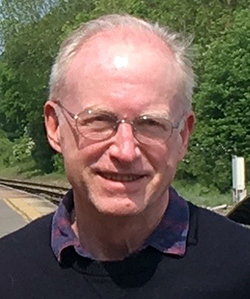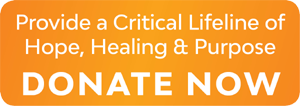Thanks to your support, adults living with the effects of a Concussion are helped by innovative services not available anywhere else in our area; services that are gaining recognition as a model program.
According to the World Health Organization and the Center for Disease Control, Traumatic Brain Injury (TBI) is a major cause of death and disability around the world. Concussion, also known as Mild Traumatic Brain Injury (mTBI), is considered an epidemic in the United States.
It was once believed that people who sustained a Concussion would typically recover fully in a few months. Research now shows over 50% of people who sustain even just one Concussion may experience significant long-term effects for a year or longer.
Globally, health practitioners, who themselves may have limited familiarity with these conditions, are often faced with a lack of resources to aid clients in their recovery.
A Concussion is a significant medical problem that can result in lasting effects that are not at all ‘mild.’ It’s important to have a place like Schurig Center that offers continued education and support at affordable rates to help those who are experiencing longer-term side effects of a Concussion. – Dr. James Wilson, PhD

Dr. Jim Wilson, PhD
33% of Schurig Center’s clients are adults with post-concussive syndrome.
With the expert guidance of neuropsychologist and concussion specialist Dr. James Wilson, Schurig Center has designed and implemented specialized services to meet the unique needs of these people.
Schurig’s Post-Concussion Education and Support Group, facilitated by Dr. Wilson, fills gaps in care by providing accurate information about Concussion and directing clients to suitable sources of care. The group also addresses the altered sense of self, a psychological reaction that is common among Concussion survivors.
We are pleased to share that the group’s outcomes show significant improvement in clients’ ability to cope with the long-term cognitive, behavioral, and psychological effects that often impact their work, family, and personal lives.
In recognition of the group’s innovation and positive outcomes, Dr. Wilson was invited to share the findings as a keynote speaker at the 4th International Conference on Clinical and Counseling Psychology this past August in Tokyo. Locally, he also spoke at MarinHealth Medical Center’s Trauma Symposium in October.

 A concussion is a type of traumatic brain injury (TBI) caused by a bump, blow, or jolt to the head or by a hit to the body that causes the head and brain to move rapidly back and forth. Signs and symptoms generally show up soon after the injury. However, unlike a broken leg, the signs of a concussion are often ‘invisible,’ such as a headache, disorientation, nausea, incoordination, and memory deficits.
A concussion is a type of traumatic brain injury (TBI) caused by a bump, blow, or jolt to the head or by a hit to the body that causes the head and brain to move rapidly back and forth. Signs and symptoms generally show up soon after the injury. However, unlike a broken leg, the signs of a concussion are often ‘invisible,’ such as a headache, disorientation, nausea, incoordination, and memory deficits.

